Upon a recent Gondwana Care Trust visit, to Swakopmund, I was introduced to Anja Rohwer and the various social projects which she supervises. It’s here, where I yet again first handily saw the impact of just a pair of helping hands and how it can change the lives of those who really need but also deserve it.
We scrambled in Anja’s old Landy, and made our way to the Democratic Resettlement Community (DRC), an informal settlement situated on the desert outskirts of Swakopmund. But I was surprised to be greeted in cheerful waves and smiles as soon as we entered the township, it’s then when the realization struck; that due to her and her family’s all-round helping hands, she, and her green Landy has become somewhat of a household name in the rural community of DRC.
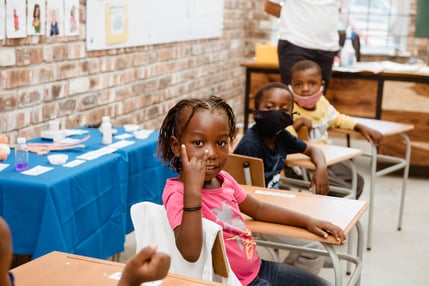
Now, to understand her story and utter love for helping those in need, it’s necessary to start it off with a bit of a “history lesson” if you will. It all began in Katutura, a community on the outskirts of Windhoek. This is where the black population was relocated during the racial-segregation times.
And until this day it testifies to the inequality of owning or having “opportunity”. Realizing this, the “Katutura Projects” found it’s origin from the later director of the Namibian Red Cross, Jutta Rohwer. Essentially these projects offered many children a more “exciting” future, filled with opportunities.
With a growing need to achieve a “friendlier’ world, Jutta founded and supported many more projects across Namibia. These projects had a large focus concerning education and selfsustainability. Upon her passing, Anja (her daughter), her family and many hard-working helpers, ensures the continued existence of these social projects within Namibia.
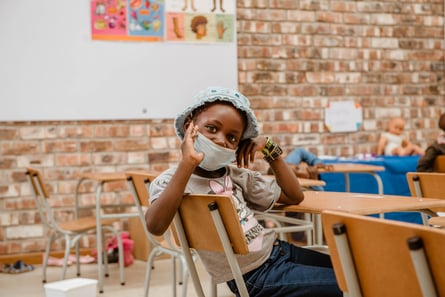
And just like that, many of the people living in DRC today are jobless and for many reasons addicted to alcohol. Without education and without a decent job, community members have little to no hope in succeeding for their foreseeable future. Children born into this community are the ones particularly suffering from the living conditions around.
And as a result of poverty, they cannot attend any school. Now, back to the Landy. As we drove past shacks and run-down school buildings, we soon stopped in front of a secluded site, with a sign reading “The DRC Women's Community and Grow Together Kindergarten”. Upon entering, I was introduced to the ladies who take it upon them to teach the about 85 children during the day. On this particular day, they were taught the colour blue. It was the smiling faces and sticky blue painted hands, that brought the tears to my eyes.
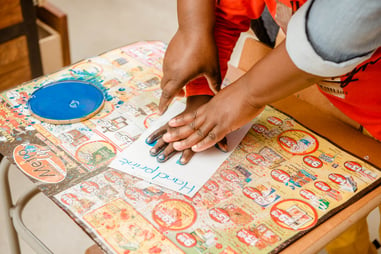
The lives of the children in the DRC are shaped by difficult conditions, in the families and there they often experience of violence. And sadly, HIV/AIDS infections are also no rarity and additionally so, the lack of medical provision. The need of proteins and vitamins are another serious problem.
So, the DRC Soup kitchen provides a warm meal and fruit to 160-240 Children twice a week. Their hearty meals exist of meat, vegetables and a stable carbohydrate ( Maize meal, Rice or Noodles). Through purposeful instruction, a formal education and manual skills are conveyed and women are essentially taught to help themselves at the women-self-help-project.
This accomplishes a fundamental change through conveying essential skills to make it possible for the women and their families to reach a better living standard. Within the scope of this project women are trained in the handcrafting of various articles like jewellery, carvings, weaved items and pottery etc. Thereafter they have the opportunity to sell their products in chosen shops, by negotiating their own prices.
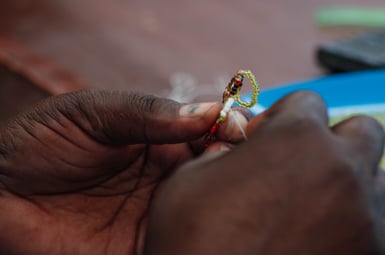
The women at the Project have also been very proud of the constant nurturing of the vegetable garden and fruit trees. Within a couple of months, these plants have flourished and some have even produced fruits.
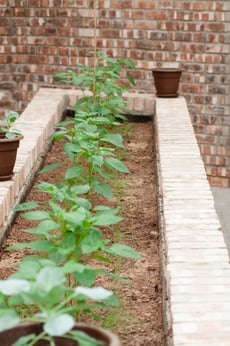
So once again, we scrambled into Anja’s Landy and as we drove away, and smiling faces greet us goodbye, I was overcome with emotions. There’s an excitement that awaits in what these kids will achieve one day, and how they and their mother’s will finally break the cycle of not having an opportunity.

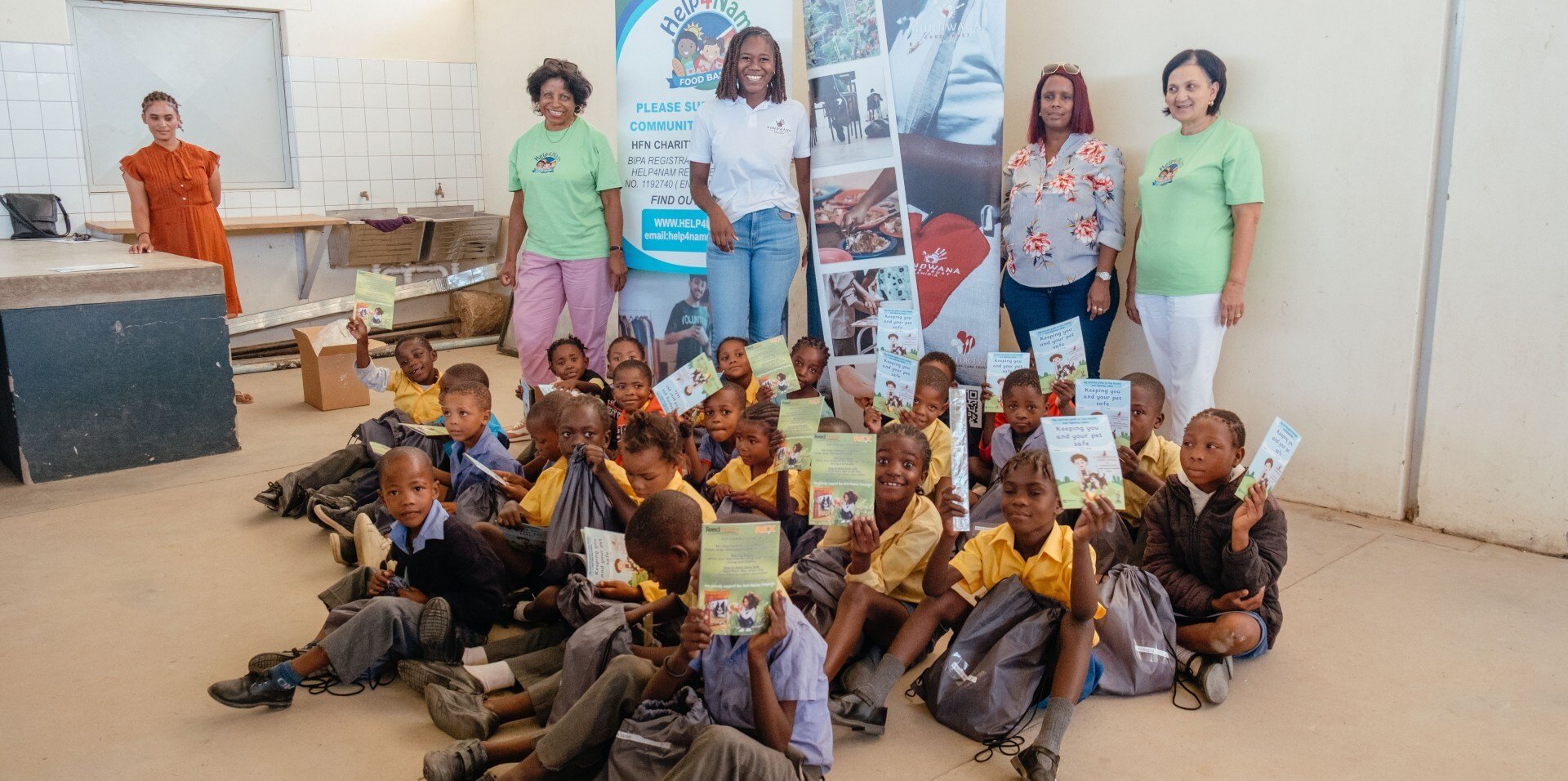
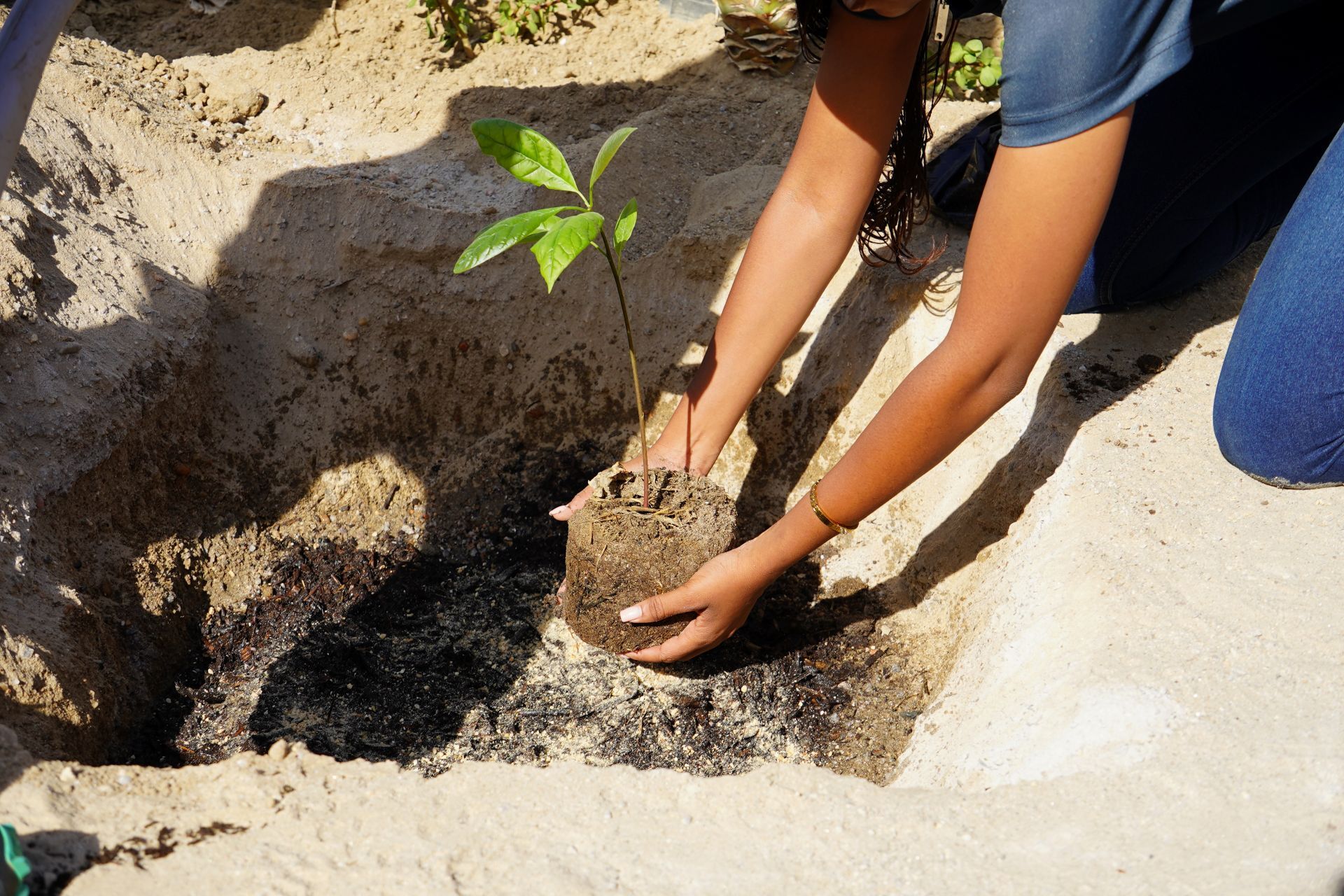
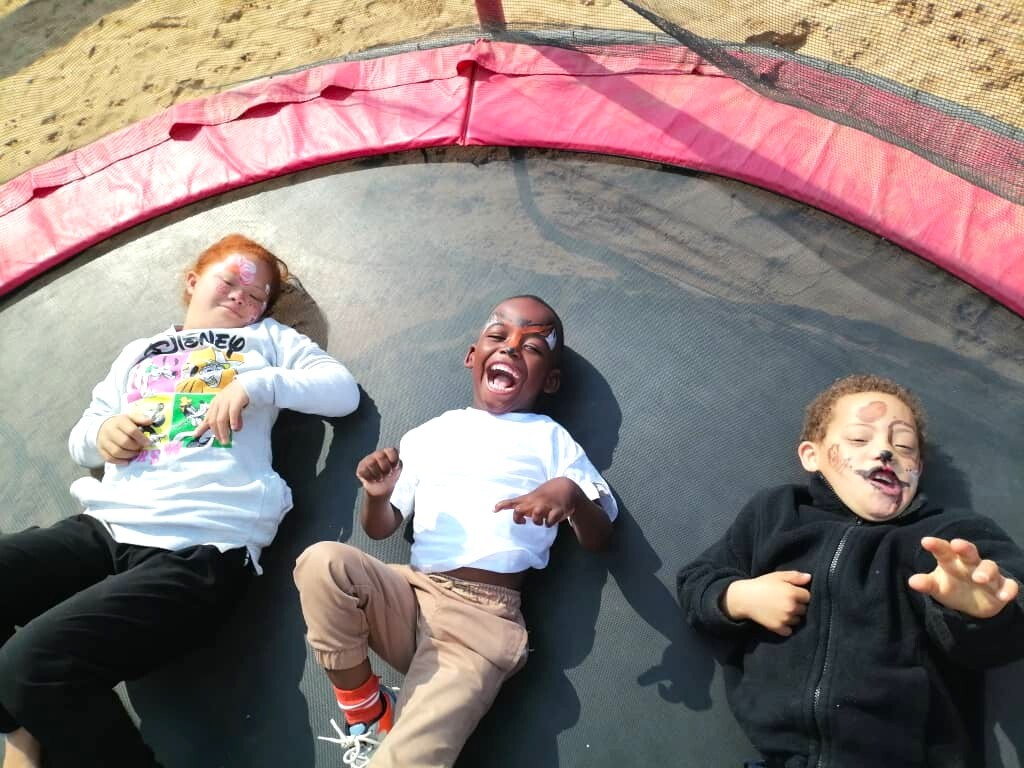

SUBMIT YOUR COMMENT